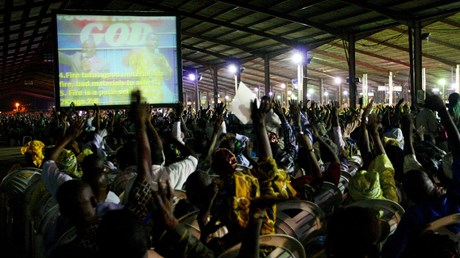New law requiring resignation after age 70 or 20 years in pulpit would affect 90 percent of evangelical pastors.

The surprise resignation of Nigeria’s highest-profile pastor has exacerbated a debate among West African Christians on the merits—and limits—of pastor tenure.
Last weekend, Enoch Adeboye resigned his role as general overseer of the 5-million-member Redeemed Christian Church of God (RCCG) in Nigeria (though not as overseer of its international presence in 192 nations). He cited the nation’s Financial Reporting Council (FRC) and its newly-introduced Governance Code for his action.
Section 9:3 of the code stipulates that leaders or founders of nonprofit organizations—including churches and ministries—must hand over leadership to a non-family member after 70 years of age or 20 years of being in charge. Adeboye is 74, and has been leading his megachurch since 1981.
The law, which is designed to guarantee financial accountability, went into effect in October 2016. If fully implemented, 90 percent of the populous West African nation’s evangelical church founders and leaders would be required to step aside.
Affected prominent pastors would include David Oyedepo of Living Faith Ministries Worldwide (1 million members); Mike Okonkwo of The Redeemed Evangelical Mission (500,000 members); Chris Oyakhilome of Christ Embassy (400,000 members); and Sam Adeyemi of Daystar Christian Centre (300,000 members). Countless other pastors with smaller congregations would also join the massive wave of forced resignations across the oil-rich nation.
Nigeria’s evangelical community responded with outrage over both Adeboye’s resignation and the FRC’s financial rule, setting off heated debates over pastoral succession.
Many condemned the regulations, alleging they were designed to meddle in church …
Source: Christianity Today Most Read